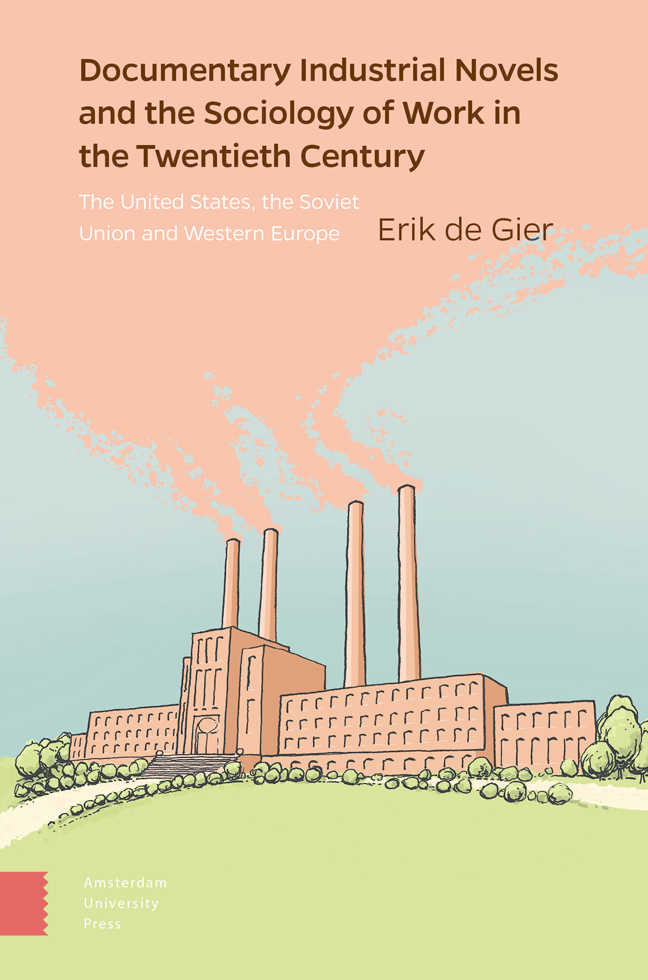 Documentary Industrial Novels and the Sociology of Work in the Twentieth Century
Documentary Industrial Novels and the Sociology of Work in the Twentieth Century Book contents
- Frontmatter
- Contents
- Acknowledgements
- Preface
- Note on sources
- 1 Bringing together the fields of sociology and literature: Towards an integration of Modernist industrial novels into industrial sociology
- 2 The rise of welfare work capitalism and the Americanization of production processes in the United States, Western Europe, and the Soviet Union
- 3 Between ‘utopia’ and ‘dystopia’: American 20th-century industrial novels
- 4 Socialist-realist industrial novels in the Leninist and Stalinist Soviet Union in the 1920s and 1930s
- 5 New Objectivity industrial novels in Weimar Germany
- 6 Neo-realist industrial novels in post-war Italy: The Olivetti case
- 7 Simone Weil and Modernist industrial novels in France
- 8 Transnational comparison and concluding reflection
- Bibliography
- Index
5 - New Objectivity industrial novels in Weimar Germany
Published online by Cambridge University Press: 20 February 2024
- Frontmatter
- Contents
- Acknowledgements
- Preface
- Note on sources
- 1 Bringing together the fields of sociology and literature: Towards an integration of Modernist industrial novels into industrial sociology
- 2 The rise of welfare work capitalism and the Americanization of production processes in the United States, Western Europe, and the Soviet Union
- 3 Between ‘utopia’ and ‘dystopia’: American 20th-century industrial novels
- 4 Socialist-realist industrial novels in the Leninist and Stalinist Soviet Union in the 1920s and 1930s
- 5 New Objectivity industrial novels in Weimar Germany
- 6 Neo-realist industrial novels in post-war Italy: The Olivetti case
- 7 Simone Weil and Modernist industrial novels in France
- 8 Transnational comparison and concluding reflection
- Bibliography
- Index
Summary
Abstract
In this chapter a number of Weimar industrial novels, written in the 1920 and 1930s, are analysed against the background of the Americanization of production in Germany. These novels fit well into the arts and literature of the contemporary neue Sachlickeit (New Objectivity) movement. Nevertheless, there are important differences. These vary from a Marxist approach (Bredel, 1930) to a more neutral stance (Reger, 1931/1992) as well as from a more empirical sociological approach (Kracauer, 1930/2013) to a more historical narrative approach (Reger 1931/1992). The Americanization of production in German industry occurred mainly in the 1920s. By the end of the 1920s and in the 1930s it became more adapted to a more specific German translation of Americanization.
Keywords: Industrial novels, Weimar Republic, reportage, New Objectivity/neue Sachlichkeit, Americanization of production, Fordism.
Introduction
The Modernist industrial novels I will consider in this chapter were written after World War I in Weimar Germany in the 1920s and early 1930s.
This requires the introduction of two interrelated terms: ‘Constructivism’ and ‘New Objectivity’. Both terms are primarily linked with developments in avant-garde visual art in various countries in the aftermath of World War I. Well-known avant-garde movements in the visual arts included German and Russian Expressionism (Kirchne, Nolde, Die Brücke, Dada, Kandinsky, Malewitsch), Cubism, and Italian Futurism (Marinetti) (Bowlt, 1988, xix–xl). It is important to realize that the avant-garde did not limit itself to painting but also encompassed sculpture, architecture, cinema, theatre, and literature. Compared to pre-war artistic movements such as naturalism, impressionism, and symbolism, a new and remarkable characteristic of the avant-garde movement after the war was the idea that art not only had an aesthetic goal, but also had to contribute to societal progress, social change, and even to a new and more just world. French- Bulgarian philosopher Tzvetan Todorov wrote a penetrating essay about this newly emerging relationship between art and politics between the introduction of Futurism in Italy before the Great War until the rise of dictatorship in Italy, the Soviet Union and Germany in the 1920s and 1930s (Todorov, 2009, 193–230). In Germany the armistice of November 1918 was followed immediately by revolution and the abdication of the Kaiser, and the following month a group of artists – called the November Group in honour of these tumultuous events – was founded.
- Type
- Chapter
- Information
- Documentary Industrial Novels and the Sociology of Work in the Twentieth CenturyThe United States, the Soviet Union and Western Europe, pp. 87 - 110Publisher: Amsterdam University PressPrint publication year: 2023
